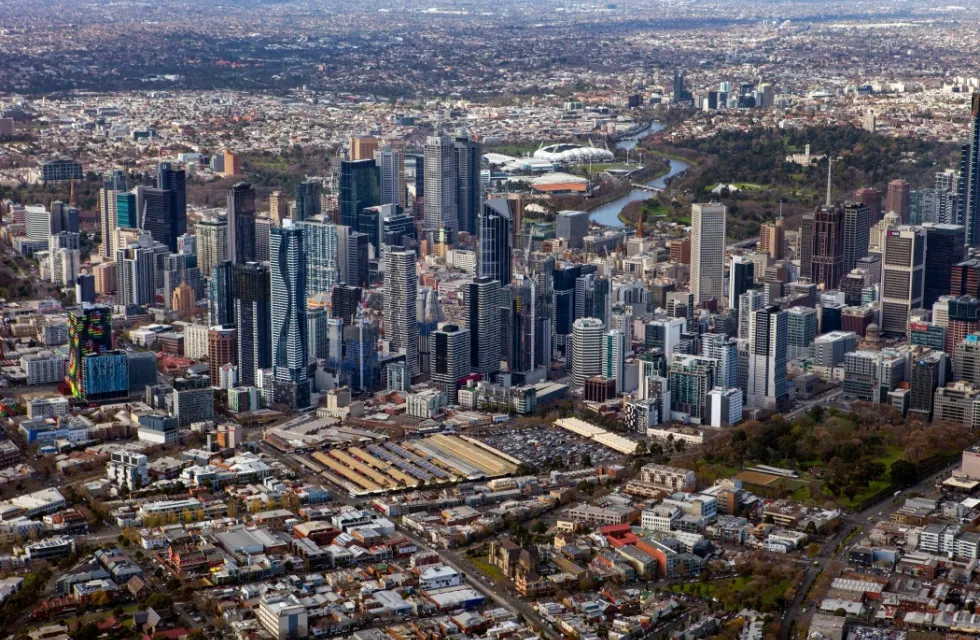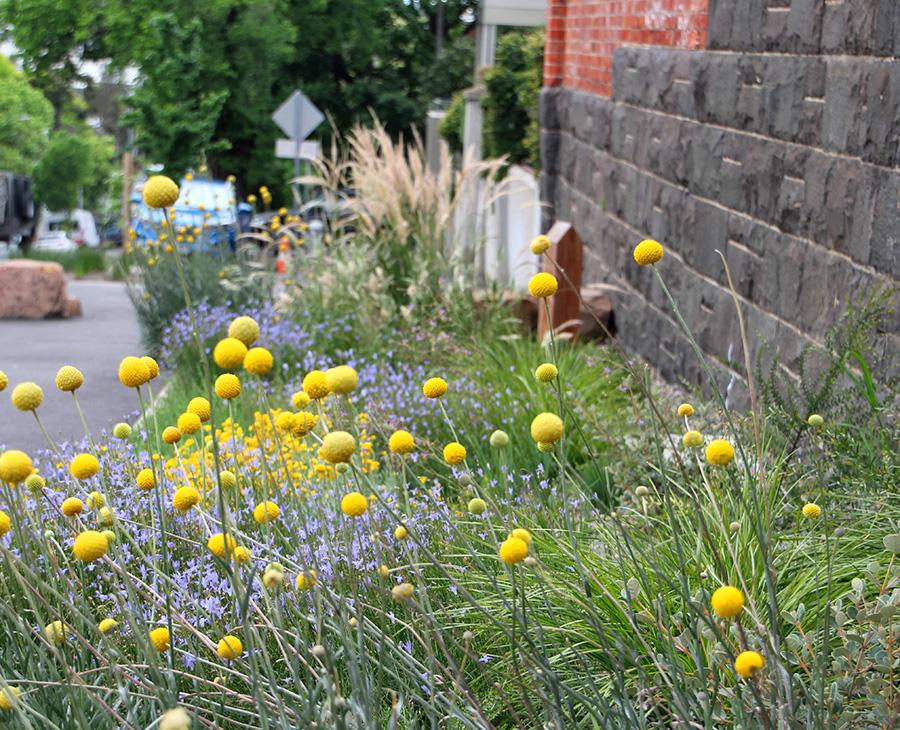Urban greening specialist Biofilta has created a sprawling rooftop farm in the city’s Docklands precinct, providing a unique green open space that’s free to enjoy.
"Skyfarm aims to become a leading platform for advanced sustainability training and learning, including urban farming, water conservation, renewable energy, energy efficiency, zero waste living and the practical pathways to achieving closed loop cities. Skyfarm is designed as a multi-use space including our productive urban farm, hothouses, solar energy, classrooms, rooftop orchard, cafe, nursery and event spaces."
Marc Noyce, Biofilta
In December 2021, Melbourne Skyfarm celebrated the completion of the rooftop urban farm. The 2000 square metre carpark rooftop has been transformed into a productive and innovative urban farm, with beautiful seating, a playground, vegetable and herb production and fruit trees.
Stay tuned for project updates.
Melbourne Skyfarm is located on the rooftop of a multi-storey car park on Siddeley Street, Docklands. Overlooking the Yarra River and the Melbourne Convention and Exhibition Centre, Melbourne Skyfarm will open for members of the public to enjoy in late 2022.
Melbourne Skyfarm includes:
- Containerised garden beds for growing vegetables, fruits, herbs and trees. The garden beds will cover 800 square metres of the carpark surface.
- Plants grown in specially designed wicking modules connected in rows, incorporating water storage, aeration vents, and a capillary watering design.
- Trellises to support climbing plants and maximise greening opportunities on vertical surfaces.
- Water run-off captured from downpipes, cleaned using biofiltration and stored in a 30,000 litre water tank to be reused on the garden beds.
- A retail plant nursery and sustainability education centre for schools (currently being built).
- Large sections of the gardens dedicated to generating an annual surplus of vegetables for local food charity OzHarvest.
Environmental
- Microclimate cooling of the rooftop. It is estimated that with 800 square metres of new green area, the site will evaporate 3200 litres of water per day on average and up to 9600 litres per day in peak summer periods.
- Harnessing large amounts of storm water that is currently going to waste and diverting it to plant growth.
- Reducing the amount of pollutant runoff to nearby rivers.
- Biofilta foodcubes installed are made locally from 80% recycled food grade plastic, thereby reducing landfill and promoting a circular economy.
Community
- Community and school education programs planned on subjects such as urban agriculture and sustainability.
- Community access to greenery in a highly urbanised area of the city.
- Portions of vegetables grown donated to food charity OzHarvest.
"Engaging with food growing at a community level strengthens bonds between people and communities - we want Skyfarm to demonstrate that these benefits can be enjoyed anywhere, including densely populated cities like Melbourne. Skyfarm is not just about a rooftop farm and growing food in cities, it s about reimagining our cities to be healthier and happier places, and will become a model for how our cities can reverse their environmental impact and build resilience in the face of a changing climate."
Marc Noyce, Biofilta
Biofilta completed the following steps to turn their project ideas into a reality:
- Gaining the approval and offer of project partnership with the building owner.
- Liaising with property owner to secure an eight-year lease of the rooftop.
- Obtaining a formal letter of support confirming project.
- Obtaining costing breakdown of the project
- Creating technical rooftop design
- Planning expected stages of construction.
- Creating Renders of rooftop design
- Applying for the Urban Forest Fund grant
- Obtaining a planning permit to carry out the works.
- Project delivery.
Melbourne Skyfarm is under construction and is expected to open to the public in late 2022.
To learn more about Melbourne Skyfarm and to stay up to date visit the Melbourne Skyfarm websiteOpens in new tab.

Site before greening works, taken November 2019
Photo: David Hannah

Site after greening works, taken December 2021
Photo: David Hannah

Site before greening works, taken November 2019 Photo: David Hannah
Photo: David Hannah

Site after greening works, taken December 2021
Photo: David Hannah

Site before greening works, taken November 2019
Photo: David Hannah

Site after greening works, taken December 2021
Photo: David Hannah

Site before greening works, taken November 2019 Photo: David Hannah
Photo: David Hannah

Site after greening works, taken December 2021
Photo: David Hannah





